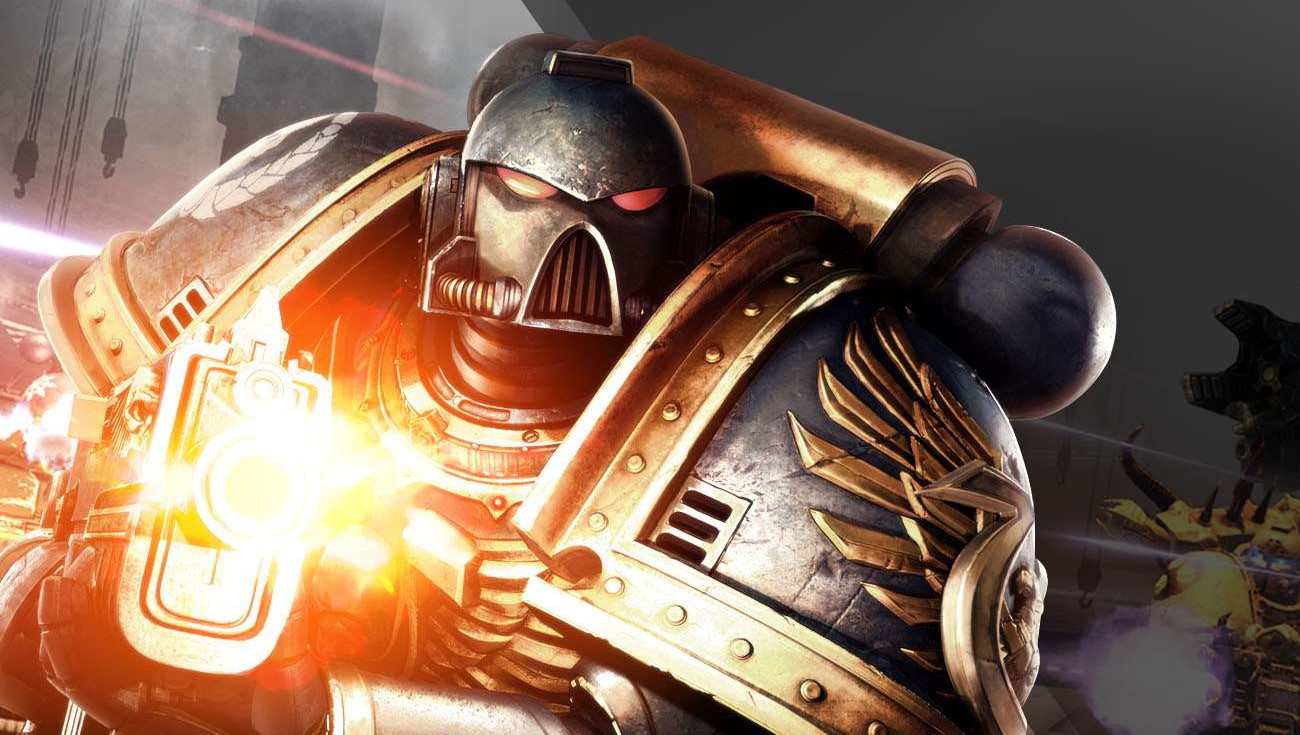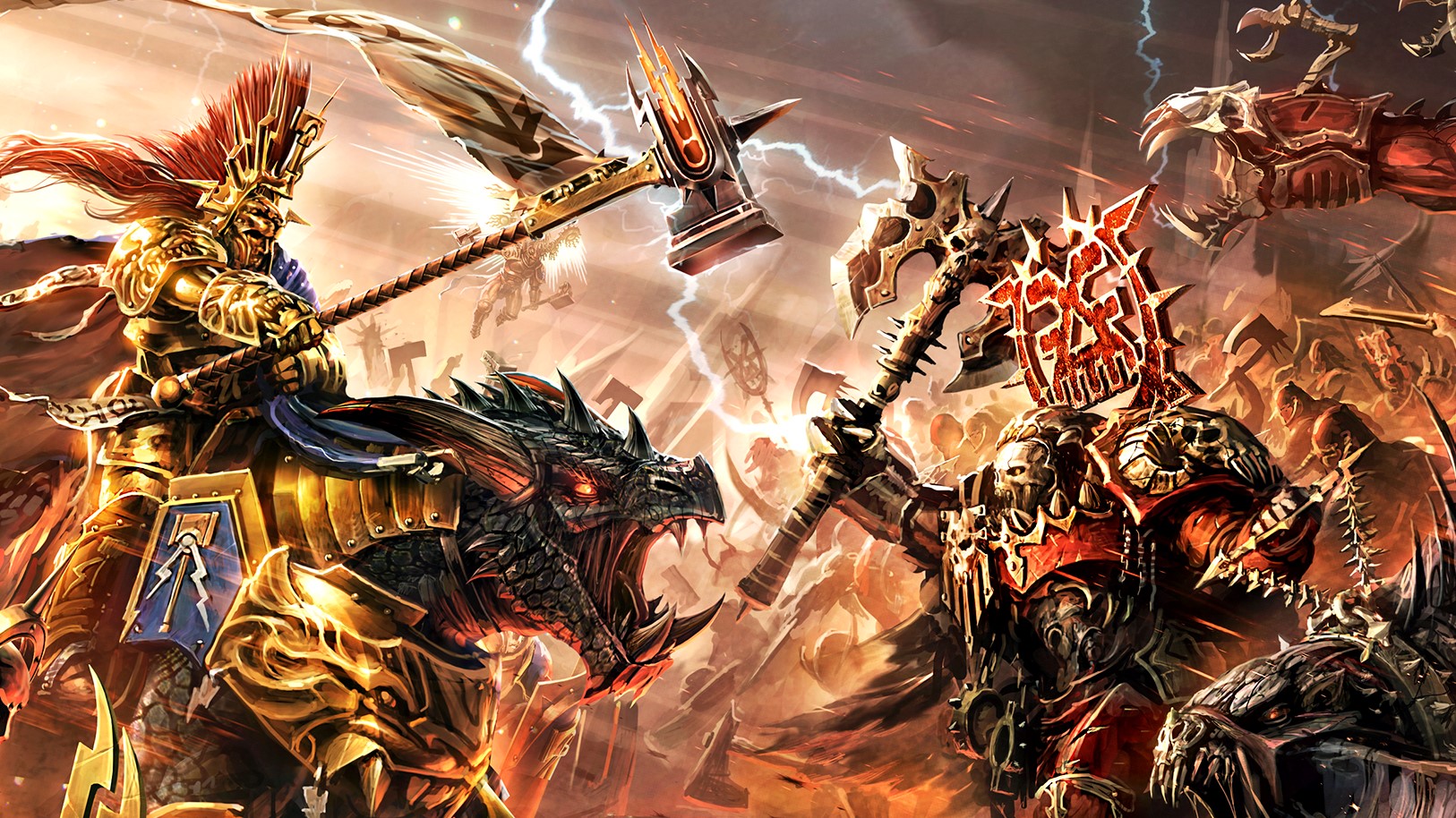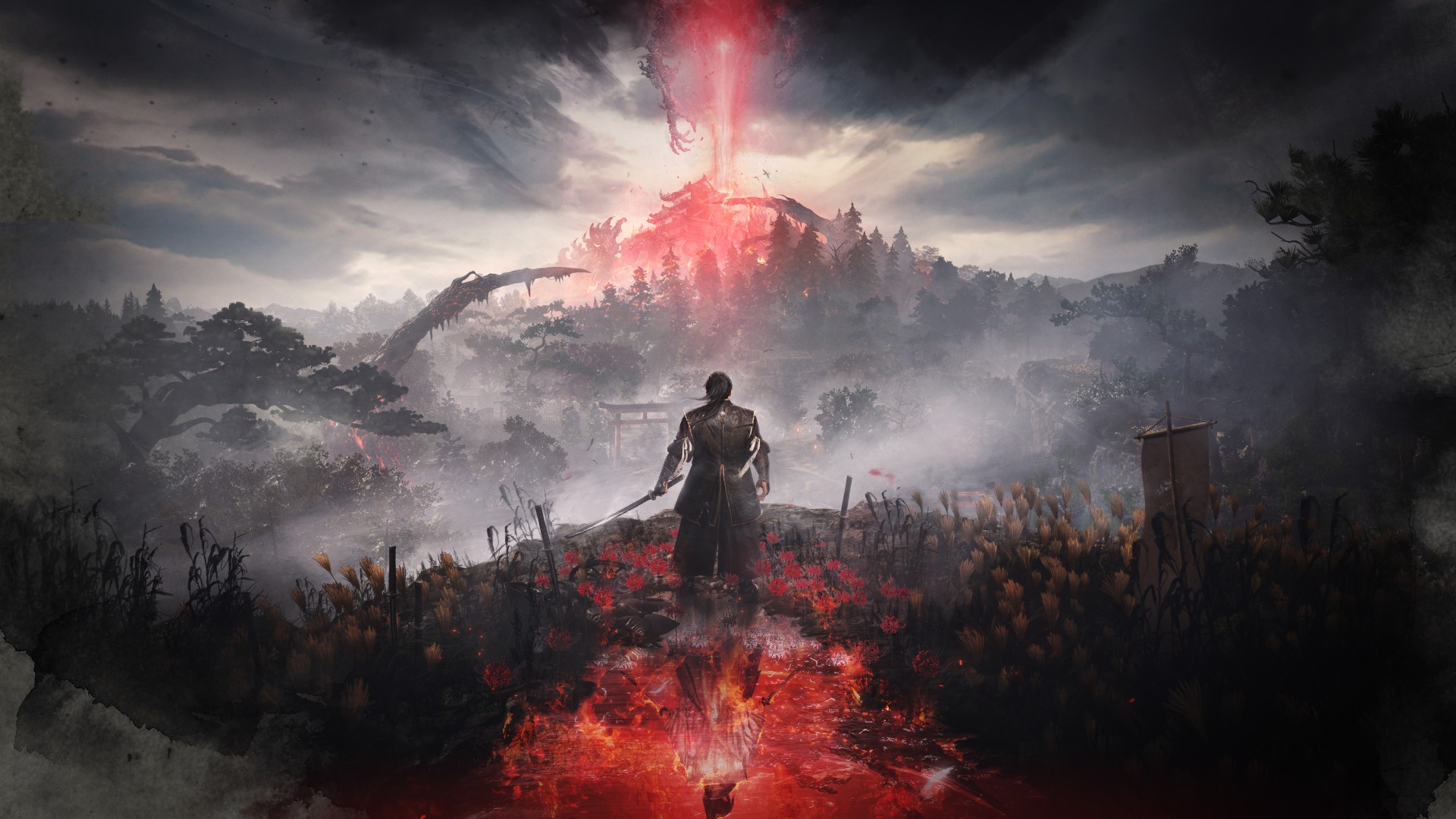Games Workshop made £25 million from videogames last year, and a dozen more titles are on the way
In the grim darkness of the far future, there is only licensing profit.

Keep up to date with the most important stories and the best deals, as picked by the PC Gamer team.
You are now subscribed
Your newsletter sign-up was successful
Want to add more newsletters?

Every Friday
GamesRadar+
Your weekly update on everything you could ever want to know about the games you already love, games we know you're going to love in the near future, and tales from the communities that surround them.

Every Thursday
GTA 6 O'clock
Our special GTA 6 newsletter, with breaking news, insider info, and rumor analysis from the award-winning GTA 6 O'clock experts.

Every Friday
Knowledge
From the creators of Edge: A weekly videogame industry newsletter with analysis from expert writers, guidance from professionals, and insight into what's on the horizon.

Every Thursday
The Setup
Hardware nerds unite, sign up to our free tech newsletter for a weekly digest of the hottest new tech, the latest gadgets on the test bench, and much more.

Every Wednesday
Switch 2 Spotlight
Sign up to our new Switch 2 newsletter, where we bring you the latest talking points on Nintendo's new console each week, bring you up to date on the news, and recommend what games to play.

Every Saturday
The Watchlist
Subscribe for a weekly digest of the movie and TV news that matters, direct to your inbox. From first-look trailers, interviews, reviews and explainers, we've got you covered.

Once a month
SFX
Get sneak previews, exclusive competitions and details of special events each month!
Games Workshop, the UK-based company behind the Warhammer products, has released its yearly financials and discussed its ever-increasing presence in videogames. The Warhammer brand is not so much the company's bread-and-butter as the entire contents of the pantry, and while its core business remains miniatures and its own products, it is now involved in a huge number of licensing deals to make videogames.
The financial year saw six new Warhammer games, four on PC/console, one VR, and one mobile: the two Games Workshop especially highlighted as "launches of note" were Total War: Warhammer 3, and Warhammer 40,000: Chaos Gate – Daemonhunters. This contributed to the company's overall licensing revenue increasing from £11.7 million in 2020/2021 to £28.0 million in 2021/2022, which is put down to "a high level of guarantee income on multi-year contracts signed in the year", which was £15 million against 2021's £4.3 million.
That income splits as follows: 83% PC and console games, 7% mobile and 10% 'other'. So about £25.2 million of the licensing money is videogames.
Which is obviously a lot of money but, to put that in context of Games Workshop overall, the core business of miniatures, retail, online sales and all its other in-house products made £391.5 million over the same period. So videogames are an ever-more-important part of GW, but still a relatively small part of the overall picture.
The financials also make special mention of Space Marine 2, announced last year, "which has been the most consistently requested game since the first game came out in 2011. Fan response [to the announcement] was overwhelmingly positive."
The statement goes on to say that Games Workshop expects six Warhammer games to launch in 2022/23, including Warhammer 40,000: Darktide and Bloodbowl 3. As for an overview: "In total there are 12 unreleased games in development and four new licences were signed in the year."
As well as the three games mentioned above, those in development that are known about include Warhammer 40K: Rogue Trader, Warhammer 40K: Boltgun, Warhammer 40K: Warpforge, Warhammer 40K: Tacitus (a mobile game), and Nexon's Warhammer: Age of Sigmar game. Which leaves four titles currently in development but unannounced.
Keep up to date with the most important stories and the best deals, as picked by the PC Gamer team.

An interesting element of the licensing approach is that Games Workshop has now split that division into 'videogames' and grouped everything else under 'media', showing just how important the games side is to the business. We'll return to that in a moment, but there is an interesting part of the media section where CEO Kevin Rountree breaks out of the usual dry-as-dust tone to say the following about screen adaptations.
"[These deals are] quite complex and we don't wish to slip up on any of our legal duties or misrepresent progress when this industry works at a different pace to our core business. I continue to remind our team, it's a long process and we can fail at many hurdles. We remain confident we will bring the worlds of Warhammer to the screen like you have never seen before. We are pragmatically patient, it's not in our complete control."
Getting back to videogames, GW is looking for more long-term partners and notes that "The efforts it takes to bring a video game to launch is incredible: we take this opportunity to thank our current partners for their ongoing investment in Warhammer, their hard work and dedication in representing our IP true to their artistic and literary form and wish them continued success."
Times are good for Games Workshop and its many fans, and it's great to see the Warhammer universe continue expanding into games: my particular poison is 40K, and it's such a great setting. The company's increasing involvement in games over the last decade has produced some absolute crackers and, with clever fan service like Space Marine 2, GW clearly realises there's a bunch of Warhammer nerds like me who may no longer have the time to mess around with the miniatures, but just want an interactive dose of 'For the Emperor!' every so often. Now, if only it could get around to making a decent 40K MMO...

Rich is a games journalist with 15 years' experience, beginning his career on Edge magazine before working for a wide range of outlets, including Ars Technica, Eurogamer, GamesRadar+, Gamespot, the Guardian, IGN, the New Statesman, Polygon, and Vice. He was the editor of Kotaku UK, the UK arm of Kotaku, for three years before joining PC Gamer. He is the author of a Brief History of Video Games, a full history of the medium, which the Midwest Book Review described as "[a] must-read for serious minded game historians and curious video game connoisseurs alike."

